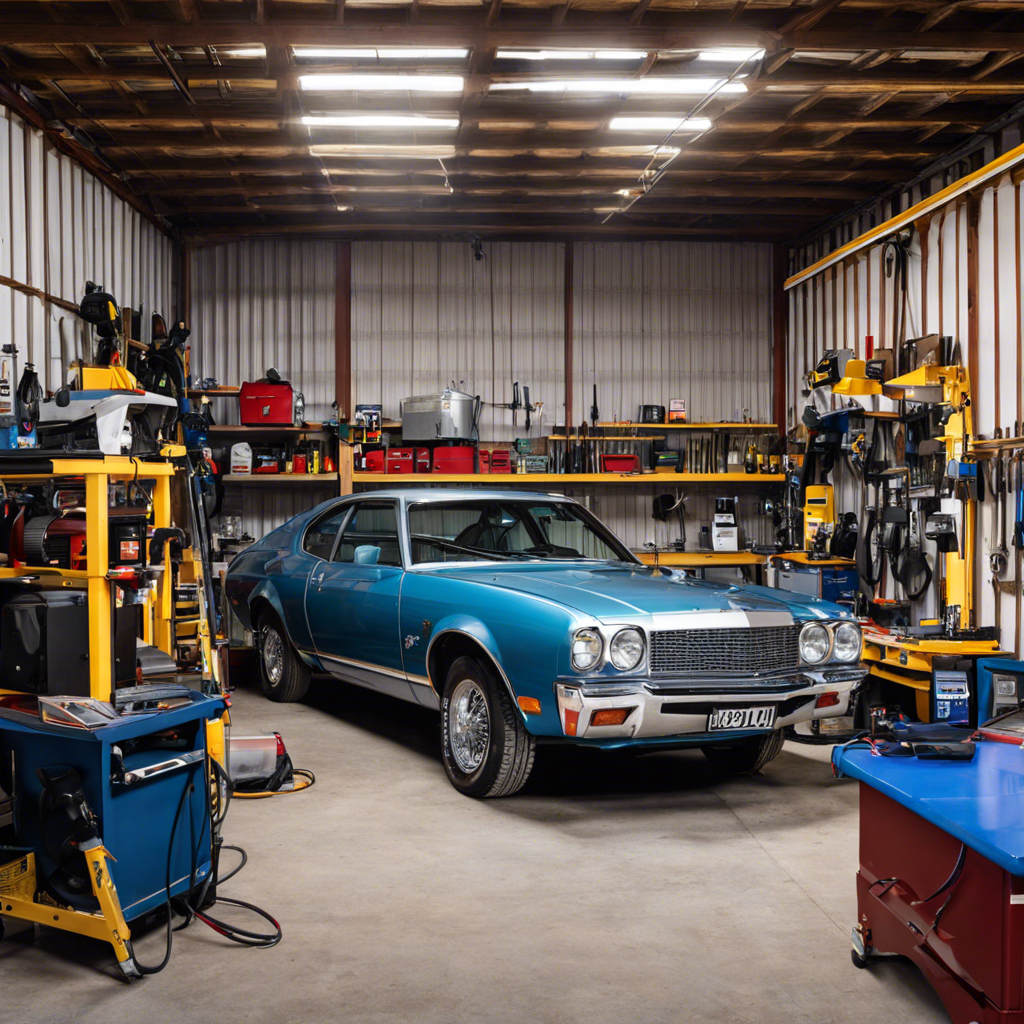**Paragraph 1:**
For car enthusiasts and do-it-yourself mechanics in rural areas, having a well-equipped workshop can be a necessity. With long distances to the nearest repair shop and limited access to specialized tools and services, being self-sufficient when it comes to car repairs can be a real advantage. So, what does it take to set up a workshop for car repairs in the country?
**Paragraph 2:**
First and foremost, you’ll need a suitable space. This could be a dedicated garage or a shed, ideally with concrete floors and ample lighting. Ensure that the space is large enough to accommodate your vehicle comfortably and that you have enough room to move around it and work on all sides. Good ventilation is also crucial, as you’ll likely be dealing with fumes and dust.
**Paragraph 3:**
Next, invest in a quality toolset. At a minimum, you’ll need a comprehensive set of metric and imperial sockets and spanners, screwdrivers, pliers, and a jack and jack stands. It’s worth spending a little extra on tools that will last and provide accurate fits to avoid rounding off bolts and causing further complications. You may also want to consider specialized tools such as torque wrenches and engine hoists if you plan on undertaking more complex jobs.
**Paragraph 4:**
Rural mechanics also need to be creative and adaptable. Living far from auto parts stores means that you’ll often have to make do with what you have or come up with innovative solutions. Stock up on common consumables like oil, filters, and bulbs, and consider keeping a small inventory of frequently needed parts, such as brake pads and hoses. Developing relationships with local suppliers and mechanics can also be beneficial for accessing harder-to-find parts and expertise.
**Paragraph 5:**
Don’t underestimate the value of a good workbench and storage system, too. A sturdy workbench will provide a space for repairs and maintenance away from the car, and it will also help keep your workshop organized and safe. Invest in shelves and cabinets to store tools and parts, ensuring they are within easy reach and protected from dust and moisture.
**Paragraph 6:**
While equipping your workshop, give consideration to your safety and that of anyone who might be helping you. Essential safety gear includes eye and hearing protection, gloves, overalls, and a fire extinguisher. If you plan on undertaking welders or using flammable materials, ensure your space is adequately ventilated and that you have the correct safety equipment, such as a welding mask and respirator.
**Paragraph 7:**
In addition to your physical tools and equipment, take advantage of the wealth of information available online. Forums, YouTube channels, and how-to guides can provide invaluable advice and step-by-step instructions for specific repairs and maintenance tasks.
**Paragraph 8:**
Equipping your rural workshop for car repairs can be a rewarding and empowering endeavor. With the right tools, knowledge, and creative problem-solving skills, you’ll be able to tackle a range of automotive issues and potentially save yourself time and money.
**Paragraph 9:**
To further enhance your capabilities, consider investing in diagnostic tools and software. Modern vehicles are equipped with onboard diagnostic (OBD) systems, and there are many affordable scanners and code readers available that can help you identify issues and troubleshoot problems.
**Paragraph 10:**
You might also want to invest in heavy-duty equipment, such as a hydraulic lift, which can make working on the underside of vehicles safer and more accessible. Ensure that you familiarize yourself with the proper use and safety precautions of such equipment before use.
**Paragraph 11:**
When it comes to more specialized tasks, such as wheel alignments or air conditioning repairs, you may find it beneficial to invest in dedicated equipment. Wheel alignment machines, for example, can help you adjust camber, caster, and toe angles, ensuring your vehicle handles correctly and tires wear evenly.
**Paragraph 12:**
Lastly, remember that your workshop is a long-term investment. As you gain experience and your skills evolve, you can continue to expand and refine your setup. Over time, you may find yourself tackling increasingly complex repairs and modifications, requiring more specialized tools and equipment.
**Paragraph 13:**
By taking a thoughtful and systematic approach to equipping your workshop, you’ll be well on your way to becoming a self-sufficient car repair expert, even in the most rural of locations. So roll up your sleeves, start planning that dream workshop, and embrace the challenges and rewards of rural automotive life.

